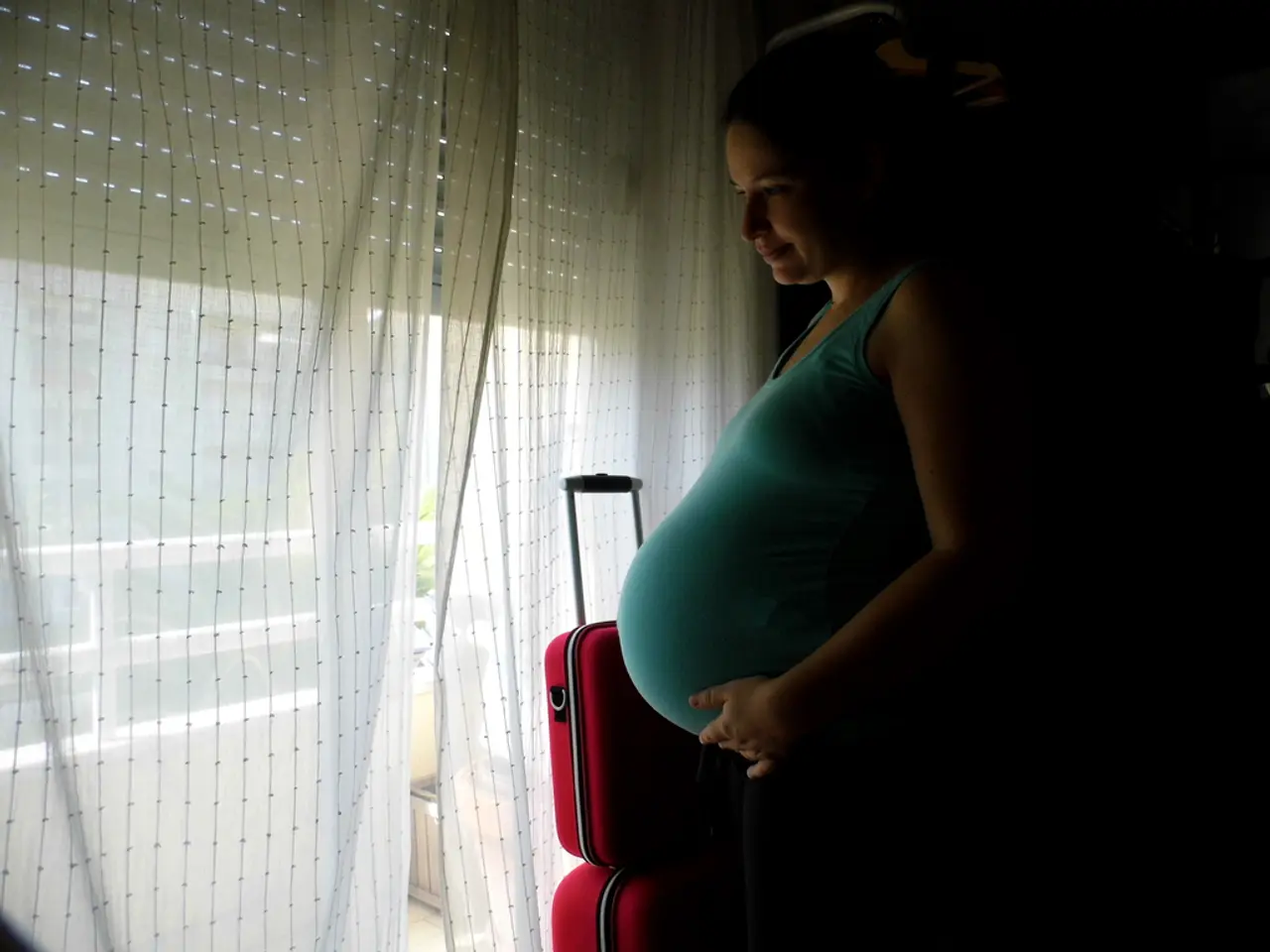Pregnancy and Bronchitis: Essential Information You Need
Bronchitis During Pregnancy: Understanding the Risks and Precautions
Pregnancy brings about significant changes in a woman's body, and one of the most crucial aspects is the delicate balance maintained by her immune system. This balance allows the body to tolerate the fetus while still protecting against infectious agents [1]. However, changes in the immune system during pregnancy can make a woman more susceptible to viral infections, such as those that cause bronchitis [2].
Bronchitis: An Overview
Bronchitis is a condition that occurs when the bronchial tubes become inflamed, commonly caused by viral infections. Symptoms include a cough, chest pain, sore throat, coughing up mucus, shortness of breath, runny nose, and fever [3].
Risk Factors and Complications
Risk factors for bronchitis include smoking, exposure to certain types of dust or pollution, older age, gastroesophageal reflux disease (GERD), having a family history of chronic obstructive pulmonary disease (COPD), and a history of other respiratory illnesses like asthma or emphysema [4].
Bronchitis typically goes away on its own, but for a pregnant woman, it can pose risks mainly by impairing maternal respiratory function, which may reduce oxygen supply to the fetus [1]. Severe bronchitis can strain the pregnant woman's cardiorespiratory system, potentially leading to decreased oxygen delivery to the fetus, resulting in premature birth or fetal death in extreme cases [1].
For the pregnant woman, possible complications include increased respiratory strain, potential progression to pneumonia, and reduced pulmonary reserve, particularly if there is pre-existing lung damage or disease [1]. The fetus may face risks such as hypoxia (lack of adequate oxygen), risk of premature birth, or stillbirth if maternal oxygenation is seriously impaired [1].
Treatment and Prevention
Mild bronchitis is often managed with supportive care (rest, hydration) and symptom relief. Treatment for bronchitis during pregnancy typically involves home remedies such as drinking warm tea or hot water with honey, using a humidifier, sucking on throat lozenges, and taking over-the-counter medications like acetaminophen at the lowest possible dose for the shortest amount of time [5].
Doctors may prescribe antibiotics for bronchitis during pregnancy only if a woman has a bacterial infection, as certain antibiotics during pregnancy have been linked to a higher risk of preterm birth and low birth weight [6]. If bronchitis or its underlying causes progress to a more severe condition, there may be health implications for the pregnant woman, including premature birth, a low birth weight in the fetus, and pregnancy loss [7].
Prevention methods for pregnant women include avoiding respiratory infections by practicing good hygiene, avoiding contact with sick individuals, and receiving recommended vaccines (like influenza and COVID-19 vaccines, as per current guidelines) [8]. Managing pre-existing respiratory conditions well before and during pregnancy can also reduce the risk of bronchial infections [8]. Promptly treating early respiratory symptoms can prevent progression [9].
Maintaining general health with good nutrition and prenatal care is crucial for pregnant women [8]. It is recommended to visit a dedicated hub for more research-backed information and in-depth resources on pregnancy and parenthood.
In summary, bronchitis during pregnancy primarily risks the fetus through reduced oxygenation from the mother’s impaired pulmonary function. Careful monitoring, safe treatment choices, and prevention of respiratory infections are key to minimizing complications [1][2][4][5].
[1] National Institute of Child Health and Human Development. (2021). Bronchitis during pregnancy. Retrieved from https://www.nichd.nih.gov/health/topics/bronchitis/conditioninfo/pregnancy [2] American College of Obstetricians and Gynecologists. (2019). Bronchitis. Retrieved from https://www.acog.org/womens-health/faqs/bronchitis-during-pregnancy [3] Mayo Clinic. (2021). Bronchitis. Retrieved from https://www.mayoclinic.org/diseases-conditions/bronchitis/symptoms-causes/syc-20371730 [4] Centers for Disease Control and Prevention. (2021). Bronchitis. Retrieved from https://www.cdc.gov/niosh/topics/bronchitis/ [5] American Lung Association. (2021). Bronchitis. Retrieved from https://www.lung.org/lung-health-diseases/lung-disease-lookup/bronchitis [6] American Academy of Family Physicians. (2021). Bronchitis in pregnancy. Retrieved from https://familydoctor.org/condition/bronchitis-in-pregnancy/ [7] UpToDate. (2021). Bronchitis in pregnancy. Retrieved from https://www.uptodate.com/contents/bronchitis-in-pregnancy [8] March of Dimes. (2021). Bronchitis. Retrieved from https://www.marchofdimes.org/complications/bronchitis-during-pregnancy.aspx [9] National Heart, Lung, and Blood Institute. (2021). Bronchitis. Retrieved from https://www.nhlbi.nih.gov/health-topics/bronchitis
- Pregnant women, due to changes in their immune system, may be more susceptible to contracting pneumonia, a potential complication of severe bronchitis.
- Science has developed various vaccines, such as the influenza and COVID-19 vaccines, to protect against common respiratory conditions and conditions like pneumonia, which can be particularly harmful during pregnancy.
- Managing mental health is essential during pregnancy, as stress can potentially worsen respiratory conditions like bronchitis, affecting both the mother's health and that of her baby.
- Healthcare providers may prescribe Pfizer antibiotics during pregnancy ifnecessary, despite certain antibiotics' potential link to preterm birth and low birth weight, given the risks associated with untreated bronchitis.
- Women's health encompasses not just physical health issues like bronchitis, but also mental health and overall well-being, essential for a healthy pregnancy and successful delivery.




